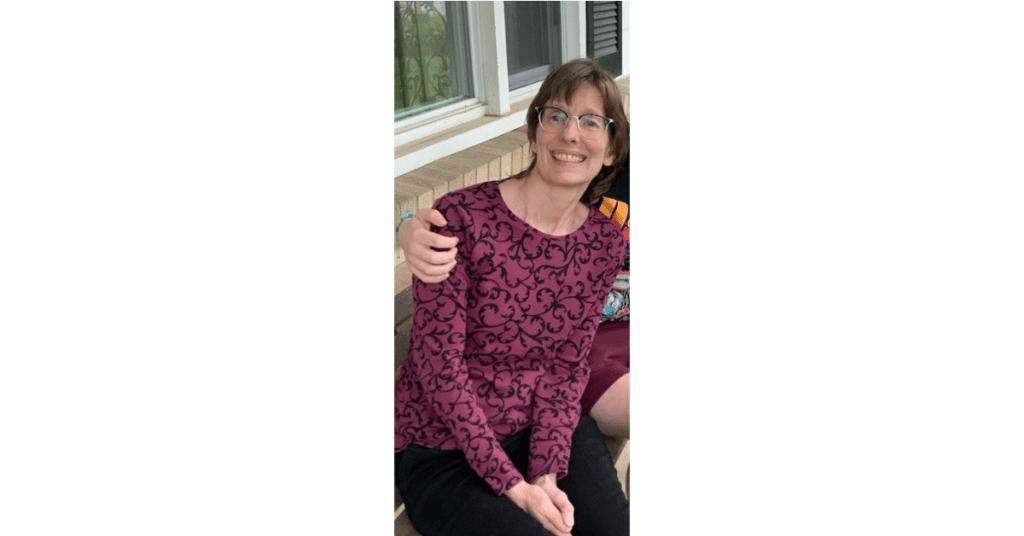Hereditary Ataxia and Genetic Testing: A Family Affair
Original Member Story Published in Generations – Spring 2009
When I was given the diagnosis of “Spinocerebellar Ataxia, type unknown” in 2005 by a local neurologist (based on my neurological exam results, MRI test results which showed cerebellar atrophy and family history), my medical journey began. It has been a long and complicated journey, filled with lots of uncertainty and angst. But I’d like to focus on the part that seems to be the most potentially promising for us – and that is genetic testing.
The starting point for me, as is for many ataxians, was to test for the full panel of Spinocerebellar Ataxias via blood draws. I did so, and a few weeks later when the office called with results, it came as no surprise to me that my results were negative. My family has been dealing with this “mystery illness” for a long time, and our diagnoses have ranged from such neurodegenerative disorders as MS, Parkinson’s, ALS, Alzheimer’s, and more. And so, I had to choose to stop with my search or to continue with further testing. Fortunately, I was physically, mentally and financially able to carry on with the continued research, and so I opted for the latter. I am still in the mild to moderate stages of our disorder, and I was more than willing to take on the role of “head guinea pig” for my living symptomatic family members (my aunts, mother, brother and me). Months and years passed – once I received second and third opinions from prominent ataxia specialists, I continued testing – this was between 2006 and 2008. After over 19 tests, results have still been negative for any testable type of SCA.
And now to the present state of my journey…I have enrolled in a clinical research study conducted by the National Institutes of Health. The medical team has suggested additional research, and my testing has changed from individual to group (family) testing – we are in the midst of a family linkage analysis study. Simply stated, linkage analysis is where blood samples are obtained from two groups of family members: affected and unaffected. The team then compares the two groups’ samples, and ideally a mutation is discovered. When genetic testing turns into group (family) testing, it gets very hairy. Attempting to gather estranged family members from a few generations is definitely no easy task! Also, testing results may or may not be wanted by some family members, especially by those who are in denial or who have been misdiagnosed in the past. Another complication with linkage analysis is that it requires samples from many family members to be collected. And unfortunately, if a family does not have enough living affected on hand, and from at least three generations’ worth, then the study may not be feasible.
True, genetic testing has been very time consuming, expensive and emotionally draining for me. However, the potential medical and scientific knowledge gained from it far outweighs the small sacrifices that I’ve had to make. Most importantly, I’m sure that my son and his cousins will be grateful to know the hand they’ve been dealt, if anyone becomes symptomatic in the future.
I guess the reason that I am so passionate and driven to find out as much as possible about our disorder and the research process is relatively simple – when I became symptomatic in my late 20’s, I had no idea whatsoever what was happening to me, and why – and I certainly do not want to pass that ignorance on to future generations. Unfortunately, medical technology wasn’t nearly as available and advanced in the 1970’s and 1980’s for my mother’s generation – but it is for my generation. Also, it’s such a relief to finally have government support on our side (Genetics Information Nondiscrimination Act, aka GINA), so as to fight discrimination in the workplace and or help with insurance coverage (some types, not all) down the road. And so I feel safe in my efforts.
My membership with NAF has truly been a God-send. Thanks to them, I’ve finally been able to break through to my family members and to convince them that ours is something much bigger than what happens to our bodies.
The shared information (from current research, to medical management tips, to Caregiver’s Corner, to the listing of Medical Advisory Board members, etc.) enables me to keep on keepin’ on. I am also an active member of the electronic bulletin board — where there is much support, both given and received.
Knowledge truly is power, and this belief has given me the powers of acceptance and relief. Having to deal with such ambiguities, uncertainties and confusion have been very tough at times. And so I am eternally grateful to the National Ataxia Foundation for all of their background support!
2025 Update: Our impression now is suspected spinocerebellar ataxia and/or hereditary spastic paraplegia, type unknown. We had Whole Exome Sequencing performed in 2017 (a trio submission — which included samples from my mother, brother and me)…nothing, still. I am unaware of further and newer testing which may be available.
What is Your Ataxia Story?
As an organization dedicated to improving the lives of those affected by Ataxia, we believe that each story has the power to inspire, connect, and empower others. We invite you to share your personal Ataxia journey with us.
Are you here to read the personal stories, but haven’t yet joined as a member? We hope you find comfort in reading about the experiences of others on their Ataxia journey. We invite you to join as a member to receive a new member story each month. It’s free, and you’ll be kept up-to-date on the latest developments in the Ataxia community.
Recent Member Stories
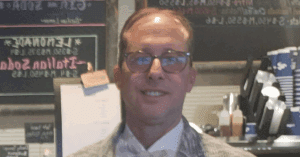
Brian G
Back in October of 2024 I was managing a hotel restaurant and came down 2 steps and just kept going without the ability to stop. Read More…
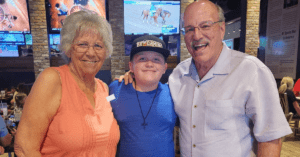
Cynthia Thibodeaux
I spent 10 yrs with a Dr who thought I had MS. After a visit to Mayo clinic in MN, I was told no MS, Read More…
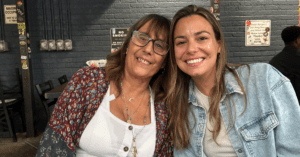
Marina Parker
Oh boy, where do I start? At the beginning I guess…following neck surgery I developed a 4cm abscess on my left prefrontal cortex. I had Read More…

Freyglee Borges
I am from Venezuela, South America, I am 24 years old and living a “normal life” studying at university. My Ataxia is quite rare. I Read More…
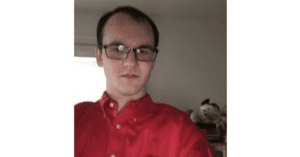
Cameron Dingerson
My name is Cameron Dingerson, and I have a rare form of spinocerebellar ataxia: SCA11. The impetus for me sharing my story is the upcoming Read More…

Valentina
Todo empezó a los 9 años cuando estaba en el colegio y la profesora y mi mamá se empezaron a dar cuenta que levantaba los Read More…


